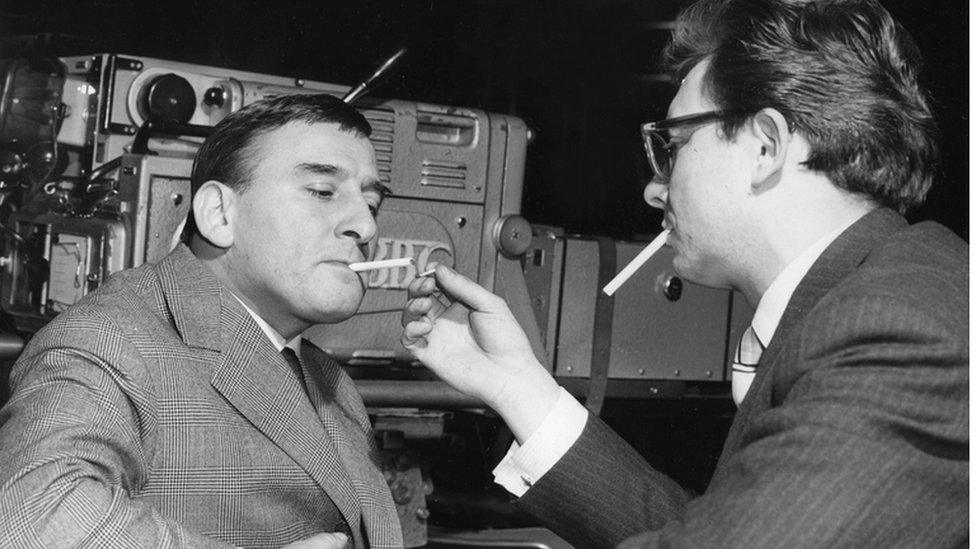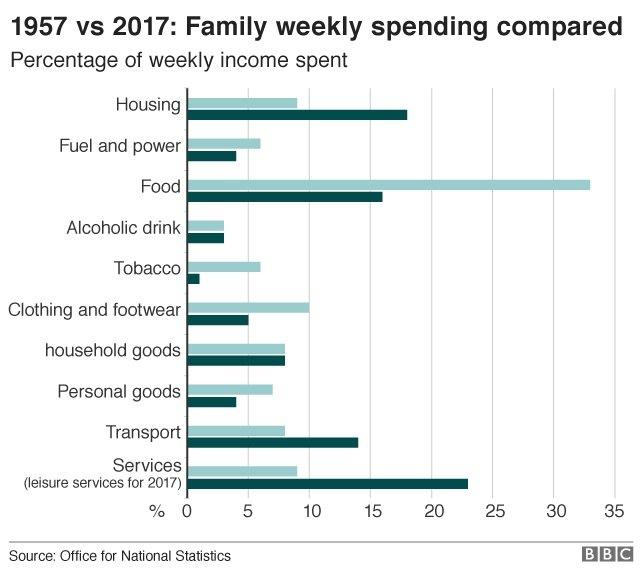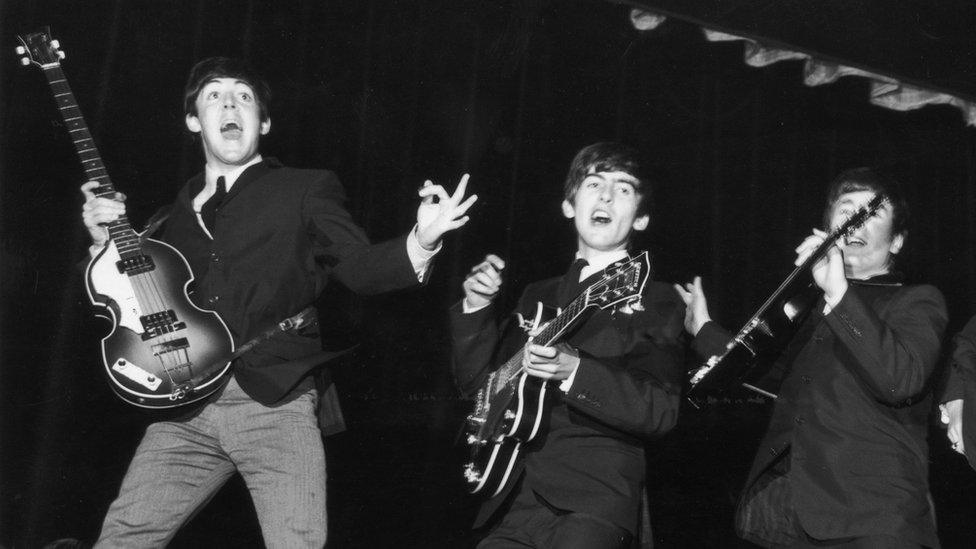How did households budget in 1957?
- Published
- comments

Expenditure on smoking has plummeted since the 1950s
The Office for National Statistics is marking the 60th anniversary of its regular Family Spending Survey by looking at how our habits and commitments have changed.
It returns us to 1957 - the year when John Lennon met Paul McCartney.
People's resources were more meagre and essentials such as food and clothing took a bigger share of the budget.
Since then, our spending on housing has doubled, but the cash we burn through on tobacco has plummeted.
And booze? We allocate the same proportion of our money to it as 60 years ago.
In 1957, Prime Minister Harold Macmillan said, famously, that "most of our people have never had it so good".

But there were still plenty of outdoor toilets, not much central heating and only one in five homes had a washing machine.
The boom in household machinery and spending on leisure was only just getting under way.
A typical household had a third less to spend per week: £381 in today's money, compared with £554 at the moment.
The big number which stands out is the cost of getting a roof over our heads, which has skyrocketed.
Expenditure on housing has gone up from 9% to 18% of the total.

In 1957 Paul McCartney and John Lennon had only just met
The decline of smoking is the most significant lifestyle change which emerges from the study.
Spending on tobacco made up 6% of the household budget in 1957.
Now that has fallen to a mere 1%.
We have got used to cheap food and cheap fashion.
What we are allocating to food has more than halved. It was a third of spending, at 33%, and now only 16%.
Money for clothes and shoes has halved as well, from 10% to 5%.
What's leisure?
We might complain about price rises and the squeeze on incomes, but in fact we have much more spare income for entertainment.
In 1957, John Lennon's teenage skiffle band, The Quarrymen, were performing at St Peter's Church in Woolton in Liverpool.
But the entertainment market was not booming back then - just 10% of income went on services, which included theatre, films, hotels and holidays.
Today, if you add together Personal Goods and Services, Leisure and Leisure Goods - categories which did not even exist back then - you get to 23%.
Maybe they had never had it so good but, of course, they didn't know what was coming round the corner.